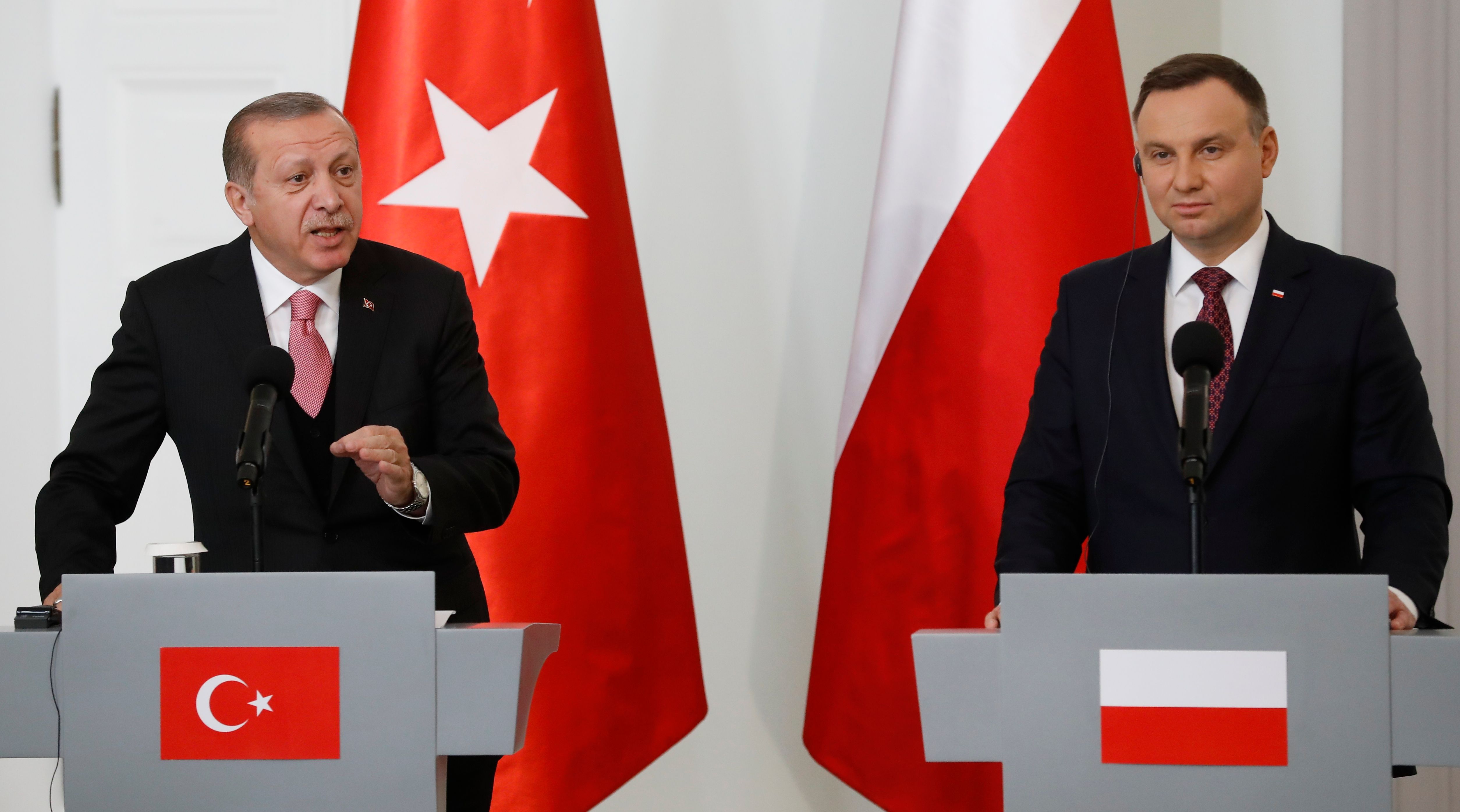President Duda Visits Turkey

What is the context of President Duda’s visit to Turkey?
Since 2020, Poland has been trying to strengthen relations with Turkey in order to increase that country’s awareness of the threats on NATO’s Eastern Flank. In September 2020, Poland joined the mission Tailored Assurance Measures for Turkey (and with Polish troops from April 2021). This was a signal that Poland respects Turkey’s security interests as part of the NATO “360-degree” approach, which assures equal treatment of threats from various directions. With Duda’s visit coming just a month before the NATO summit, it is a clear signal to Turkey about the need for reciprocity.
Further context includes the attempts to re-organise the relations between Turkey and the European Union, which gained momentum after the March European Council. Turkey in turn has sought to improve relations with the EU and U.S., especially with the latter since Joe Biden’s election. These efforts are partly motivated by Turkey’s poor economy, which has led to efforts to calm down relations with Western partners to attract foreign investment.
What are Poland’s interests with regard to Turkey?
It is in Poland’s interest that Turkey does not engage in actions that adversely affect NATO cohesion and make it difficult to strengthen the Alliance’s deterrence and defence potential (e.g., blocking an update of the defence plans for Poland and the Baltic states during the 2019 London summit). Poland seeks a pro-Atlantic Turkey, one that is aware of the problems posed by Russia’s aggressive policy for the countries of the Eastern Flank, and considerate of the challenges for NATO related to the development of Turkish-Russian relations.
Poland is also interested in reviving economic cooperation. In 2017, during Turkish President Recep Tayyip Erdoğan’s visit to Poland, the presidents of the two countries declared their goal to increase trade exchange to €10 billion euro, up from around €6 billion. Poland wants Turkey to limit its economic protectionism, which makes it difficult for some enterprises to enter and operate on the Turkish market. Moreover, Poland would like to maintain the Turkey-EU cooperation on migration.
What are Turkey’s interests with regard to Poland?
Turkey wants Poland’s support in the normalisation of European-Turkish relations and to help meet the Turkish demands to accelerate the process of modernising the customs union. In recent years, Turkey has signalled interest in developing relations with the Visegrad Group countries in the “V4+” format, so it is likely that it will seek Poland’s support also in this matter.
Turkey would like to increase trade and tourist traffic, along with developing military cooperation. The purchase of Turkish military equipment by Poland—including the sale of Bayraktar TB2 combat drones, announced ahead of Duda’s visit—is both a tangible financial and image boost for the Turkish defence industry (this is the first such transaction with a NATO state) and gives credibility to Turkey’s narrative of a contribution to Alliance deterrence policy towards Russia.
What resulted from the state visit?
The presidents of Poland and Turkey signed several agreements—the purchase of the drones and on the protection of classified information in defence industry cooperation, as well as on cooperation in the field of sport, agriculture, and “safe” tourism amid the pandemic. The details of the agreements, as well as those concerning further cooperation between the countries, will be developed by the relevant ministries during subsequent visits at the ministerial level. In addition, President Erdoğan confirmed Turkey would send F-16 fighters to Poland as part of NATO’s enhanced air policing mission.
The heads of state discussed the security situation on NATO’s Southern and Eastern flanks, with particular emphasis on the Black Sea Basin and the sovereignty of Ukraine, and also discussed the possibility of moving the Poland–Turkey–Romania trilogue up to the presidential level.
What challenges are likely in the development of relations between Poland and Turkey?
The greatest challenge is the poor state of relations between Turkey and the U.S.—Poland’s most important ally on security. The American sanctions on Turkey imposed in December last year in response to Turkey’s purchase of an S-400 air-and-missile defence system from Russia were calculated to not hamper Turkey’s military cooperation with other NATO allies. However, expansion of the sanctions is very likely if the U.S. and Turkey fail to compromise on the S-400, which may complicate defence cooperation with Turkey and increase the political cost of developing relations with it. Another challenge may arise if Turkey intensifies its cooperation with Russia in the defence sector, to which the U.S. response would be to further limit military cooperation with the Turks.
Also problematic for Poland would be if Turkey resumes its confrontational policy towards some EU Member States, especially France, Greece and Cyprus, as this would force Poland to take a position in the intra-EU debate on imposing sanctions on Turkey.


